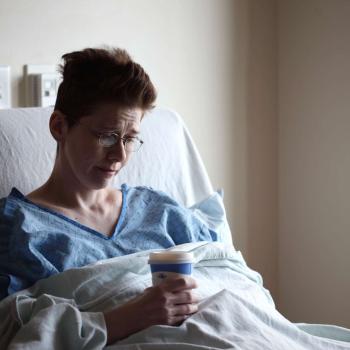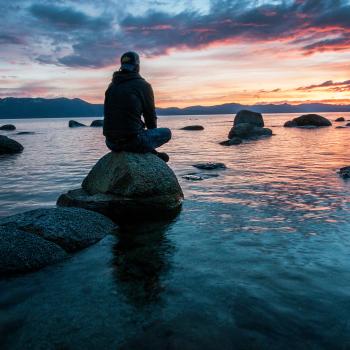
I used to say things like, “It could be worse,” to remind myself to be grateful. Over time, I became uneasy with incorporating this approach, without much questioning, as one of my attitudes of gratitude.
Sure, things could “always” be worse. On the other hand, if I needed to compare myself or my condition to someone else or another perceivably worse circumstance to feel grateful, then was I truly grateful?
This questioning has not left me.
During this COVID-19 pandemic, I find myself returning to this question. The question keeps me in integrity and keeps me seeking.
I would rather seek than settle.
To live each day with wells of appreciation regardless of direct or secondary disruptions intrigues me. To pursue gratitude for what it is and not the outcome of comparison to lower or worse condition moves me at this moment.
Yesterday morning, I caught my thoughts going to the “At least I am not (insert worse situation).”
I explored the fascinating mystery,“How can I be grateful to be without comparison?”
I turned inward to explore much more to notice and feel grateful. Emerging from this focused intention were a wealth of lived experiences and realities without any drive to comparison to some unforeseeable cataclysmic event.
When we take stock of the innumerable taken-for-granted aspects of our lives, adversity is unnecessary for us to explore the depths of gratitude.
We can live in this space of gratitude without comparing ourselves to who has is worse or how it can be worse. I believe this is a fundamental human challenge, for it is quite typical in our psychology to feel better about ourselves when we measure our status to someone who might not be faring as well.
It is not out of the ordinary to go home and hug your family a little tighter after finding out that a colleague lost a loved one. It is not unusual for someone to feel a little more thankful for the roof over their heads when they find out about a natural disaster destroying someone else’s home.
The people feeling more grateful are not cold-hearted monsters. They are-we are human. It is easy to not enjoy and appreciate to the fullest extent all the good in our lives, until an event disrupts it or if we witness it second hand. Either way, the jarring effect has a way of snapping us back to reality of what is most important in our lives.
One of the reasons to explore gratitude without comparison is to cultivate a life where one is truly present and possessed with joy beyond circumstances.
Although reflective questions help me understand more about myself and the influence of social conditioning, I am seeking similarly useful questions that inspire action:
Why am I extremely grateful to be?
I contend that asking this kind of question with parameters of no comparison helps to free us from self-limiting beliefs to accept more gratitude.
After all, gratitude is more about what is inside us than what is outside and around us. This is my invitation for continuous reflection and action.
















